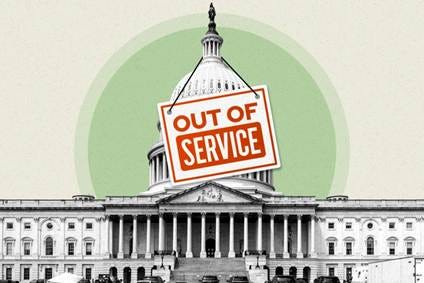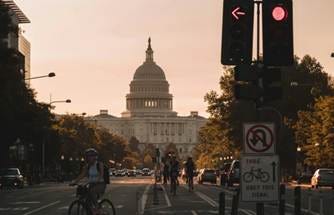Weekly Lab Report - October 8, 2025
What we've been up to thus far during the shutdown.
The beginning of the current shutdown on Wednesday, October 1, added another chapter to the ongoing saga of budget breakdown and fiscal brinkmanship. Republican congressional leadership blames the Democrat leadership, but everyone acknowledges that the roots of the current shutdown run deep and into the policy histories of both parties.
Fiscal Lab analysts have noted in recent essays that federal programs designed to provide assured financial and other support to individuals based on certain qualifications (need for food or housing, for instance) are overwhelmingly to blame for ballooning debt and seemingly endless deficits. Congress has expanded these programs well beyond its capacity to fund them. Indeed, mandatory means-tested and entitlement programs—Social Security, Medicare, and Medicaid—absorb all current federal revenues, thus requiring Congress to borrow every dollar of spending for discretionary programs, like defense and education.
The current shutdown is firmly rooted as much in policy as it is in politics. While the Lab has little if anything to do with the political side of Capitol Hill, we are deeply invested in repairing broken policies, like the government’s mandatory programs, and making others easier to fix.
That mission was clear in the Fiscal Lab’s work this past week. The Fiscal Lab began “shutdown week” by meeting with staff of the House Budget Committee and, separately, with the director of the Congressional Budget Office (CBO). These meetings stemmed from the Lab’s role in “scoring” Hill legislation. That term, “scoring,” refers to the analysis of how proposed legislation will affect the federal budget and the US economy. It is crucial that the Lab’s scores look as much as possible like those produced by CBO. Thus, the Lab follows several scoring rules used by CBO, and that allows Members to compare our analytical work with CBO’s.
That said, the Fiscal Lab will focus on improvements to scoring and economic analysis at CBO. One of our major projects in 2025–2026 will be the construction of a CBO-like budget and economic baseline. We will introduce several enhancements to those baselines, and we hope that CBO will adopt some or all of our suggestions.
The day before the shutdown, Bill Beach posted a Q&A on how the shutdown would affect the publication of jobs and inflation data from the Bureau of Labor Statistics, where he recently served as commissioner. This Fiscal Lab Explainer received extensive coverage. The New York Times linked to the piece on their home page on Friday, when the jobs report was supposed to be published, and reporters from the NBC to Money Magazine cited the Q&A as they explained the implications of the shutdown to their readers.
Finally, even though key parts of the government were closed last week, Congress continued to work. In fact, House and Senate staff took advantage of slower floor activity to work with Fiscal Lab economists on scoring proposed legislation. It is safe to say that the Lab’s staff this past week may have analyzed more legislative initiatives than any analytical group outside of the Congressional Budget Office and the staff of the Joint Committee on Taxation. Many of these initiatives, should they become law, will go far in reducing deficits and advancing fiscally sound budgets.
This is exactly the kind of analytical work that needs to be done if we wish to reform key programs and avoid future shutdowns, and that is precisely the mission of the Fiscal Lab on Capitol Hill.





